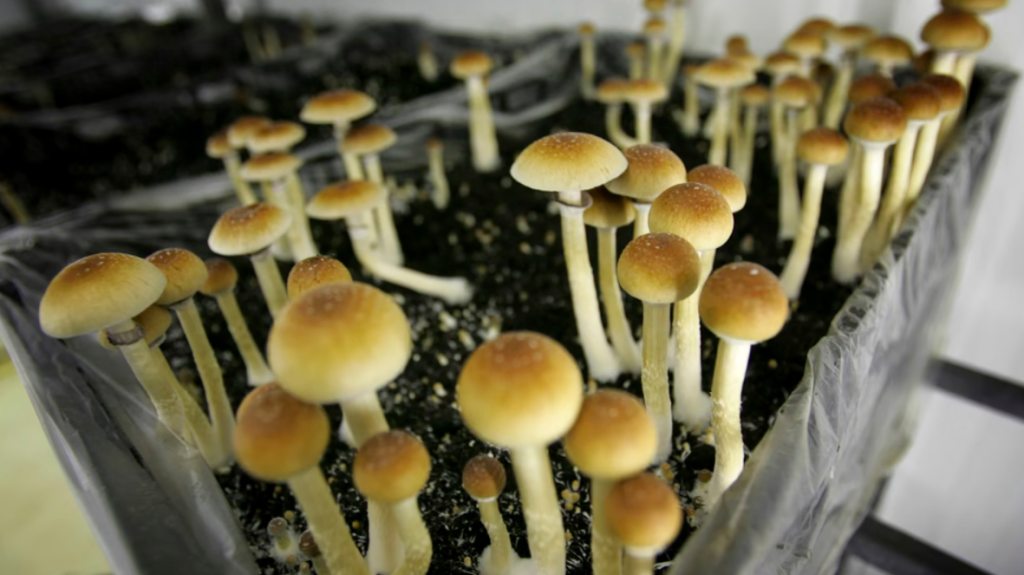Psilocybin mushrooms, often referred to as magic mushrooms, have gained increasing attention in recent years. This interest is largely due to their potential therapeutic benefits and their role in various cultural and spiritual practices. This article will delve into what psilocybin mushrooms are, their effects, potential benefits, legal status, and the latest research.
What Are Psilocybin Mushrooms?
Psilocybin mushrooms are a group of fungi that contain the psychoactive compounds psilocybin and psilocin. These compounds are responsible for the hallucinogenic effects experienced by users. Psilocybin is converted into psilocin in the human body, which then interacts with serotonin receptors in the brain, leading to altered perceptions and experiences.
Types of Psilocybin Mushrooms
There are over 180 species of mushrooms that contain psilocybin. The most well-known varieties include:
- Psilocybe cubensis: Often referred to as “golden tops” or “cubes,” this species is one of the most widely known and used.
- Psilocybe semilanceata: Commonly known as “liberty caps,” these mushrooms are found in grasslands and are one of the most potent varieties.
- Psilocybe azurescens: Known for their high psilocybin content, these mushrooms are native to the Pacific Northwest.
Effects of Psilocybin Mushrooms
The effects of psilocybin mushrooms can vary greatly depending on the dose, the individual’s mindset, and the environment in which they are consumed. Common effects include:
- Altered Perception of Time and Space: Users often report a distorted sense of time and an altered perception of their surroundings.
- Visual and Auditory Hallucinations: These can range from subtle changes in light and color to complex patterns and shapes.
- Emotional Shifts: Users may experience intense emotions, ranging from euphoria to introspective contemplation.
- Increased Sensory Awareness: Senses may become heightened, making music sound more profound or colors appear more vivid.
Duration and Onset
The effects typically begin 20 to 40 minutes after ingestion and can last between 4 to 6 hours. The intensity and duration depend on several factors, including the type of mushroom, dosage, and individual metabolism.
Potential Benefits of Psilocybin Mushrooms
Research into the potential benefits of psilocybin mushrooms is still in its early stages, but preliminary studies have shown promising results in several areas:
Mental Health Treatment
- Depression: Some studies have found that psilocybin can significantly reduce symptoms of depression, particularly in individuals who have not responded to traditional treatments.
- Anxiety: Psilocybin has been shown to alleviate anxiety, especially in patients with terminal illnesses, helping them cope with the fear of death.
- PTSD: Early research suggests that psilocybin might help individuals with post-traumatic stress disorder by allowing them to process traumatic memories in a controlled environment.
Addiction Treatment
Psilocybin has shown potential in treating various addictions, including alcohol and nicotine dependence. The substance may help by breaking the addictive patterns and providing insights into the underlying causes of addiction.
Enhanced Creativity and Problem-Solving
Some users report enhanced creativity and problem-solving abilities after using psilocybin mushrooms. This is thought to be due to the altered state of consciousness and the ability to think outside conventional patterns.
Legal Status of Psilocybin Mushrooms
The legal status of psilocybin mushrooms varies widely across the world. In many countries, including the United States, psilocybin is classified as a Schedule I substance, making it illegal to possess, sell, or use. However, there are some exceptions and recent changes in legislation:
- Decriminalization: Some cities in the United States, such as Denver, Colorado, and Oakland, California, have decriminalized the possession and use of psilocybin mushrooms.
- Medical Use: In some countries, such as Canada, psilocybin therapy is available on a case-by-case basis for individuals with serious medical conditions.
- Research: Several countries are allowing research into the therapeutic potential of psilocybin, leading to a gradual shift in public perception and policy.
Risks and Considerations
While psilocybin mushrooms can offer potential benefits, there are also risks and considerations to keep in mind:
Psychological Risks
- Bad Trips: Users may experience anxiety, paranoia, and panic attacks, especially if they are in a negative mindset or unfamiliar environment.
- Psychosis: There is a potential risk of triggering psychosis in individuals with a predisposition to mental health disorders, such as schizophrenia.
Physical Risks
- Accidental Poisoning: Misidentification of mushrooms can lead to ingestion of toxic species, which can be dangerous or even fatal.
- Nausea and Vomiting: Some users may experience gastrointestinal discomfort.
Legal Risks
As mentioned earlier, the possession and use of psilocybin mushrooms are illegal in many places, leading to potential legal consequences.
Latest Research and Future Directions
The landscape of psilocybin research is rapidly evolving. Recent studies and clinical trials are exploring various therapeutic applications:
- Clinical Trials: Several ongoing clinical trials are investigating the use of psilocybin for depression, anxiety, PTSD, and addiction.
- Brain Imaging Studies: Advanced imaging techniques are being used to understand how psilocybin affects brain function and connectivity.
- Microdosing: Research is exploring the effects of taking sub-perceptual doses of psilocybin to enhance cognitive function and emotional well-being without the hallucinogenic effects.
Conclusion
Psilocybin mushrooms, long revered in various cultures for their psychoactive properties, are now at the forefront of scientific research for their potential therapeutic benefits. While the legal landscape is still restrictive in many regions, ongoing studies and changing perceptions are paving the way for a broader acceptance and understanding of these fascinating fungi. As with any substance, it is crucial to approach psilocybin mushrooms with caution, respect, and awareness of both their potential benefits and risks.
